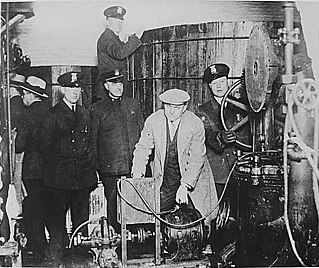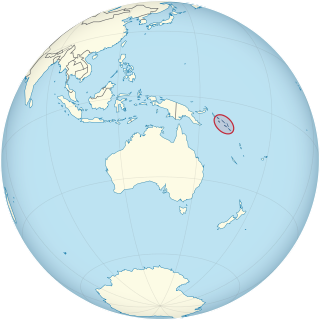
Crime in Moldova, as everywhere in the Post-Soviet states, has risen in the 1990s, after the fall of the Soviet Union, although in recent years there has been an improvement. Corruption in Moldova, economic and drug-related crimes are the most visible and predictable results of the deteriorating economic situation. Racketeering and the mafia have also risen up during the 1990s and 2000s. Petty crimes, such as pickpocketing and street thefts, are also common.

Crime in Pakistan is present in various forms, especially in the cities of Karachi, Lahore, Faisalabad, Rawalpindi, Gujranwala, Peshawar, Multan, Hyderabad, Islamabad and Quetta. Among other general crimes, it includes major crimes such as murder, rape, kidnapping, armed robbery, burglary, carjacking and corruption. For example, in the city of Lahore, 379 murders, 500 attempted murders, 2,650 abductions and 55 rapes have occurred in 2019. A direct relationship has been identified between the crime rate and unemployment rate in Pakistan. Elevated unemployment diminishes the attractiveness of legal endeavors, consequently raising the potential gains from illicit pursuits. As a result, the likelihood of an upsurge in illegal activities rises. Crime statistics of Pakistan shows that there is a rapid increase in the number of crime reported over time like other countries of the world. Mainly due to high unemployment, rising poverty, increasing inflation and urbanization. Some other non-economic factors are also responsible for it.

The use, sale, and possession of cannabis containing over 0.3% THC by dry weight in the United States, despite laws in many states permitting it under various circumstances, is illegal under federal law. As a Schedule I drug under the federal Controlled Substances Act (CSA) of 1970, cannabis containing over 0.3% THC by dry weight is considered to have "no accepted medical use" and a high potential for abuse and physical or psychological dependence. Cannabis use is illegal for any reason, with the exception of FDA-approved research programs. However, individual states have enacted legislation permitting exemptions for various uses, including medical, industrial, and recreational use.

Cannabis in the United Kingdom is illegal for recreational use and is classified as a Class B drug. In 2004, the United Kingdom made cannabis a Class C drug with less severe penalties, but it was moved back to Class B in 2009. Medical use of cannabis, when prescribed by a registered specialist doctor, was legalised in November 2018.

In the United States, the Federal Food, Drug, and Cosmetic Act defined the word "drug" as an "article intended for use in the diagnosis, cure, mitigation, treatment, or prevention of disease in man or other animals" and those "(other than food) intended to affect the structure or any function of the body of man or other animals." Consistent with that definition, the U.S. separately defines narcotic drugs and controlled substances, which may include non-drugs, and explicitly excludes tobacco, caffeine and alcoholic beverages.

The recreational and medicinal use of cannabis in the Northern Mariana Islands has been legal since September 2018. House Bill 20-178 was signed into law by Gov. Ralph Torres, becoming Public Law 20-66. The cannabis legalization bill was introduced as the "Taulamwaar Sensible CNMI Cannabis Act of 2018," named in honor of David Kapileo Peter or Taulamwaar, who advocated cannabis legalization over four years ago. The first dispensary opened to the public on July 16, 2021.

Cannabis in Papua New Guinea is illegal, but the nation is a significant producer and consumer of cannabis. Cannabis is sometimes called spak brus in local parlance.
Cannabis in Comoros is currently illegal as of September 2019. Between January 1975 and May 1978, cannabis in Comoros was legal, legalized by president Ali Soilih.
Cannabis in Lesotho is illegal for any use, but largely tolerated. Cannabis is widely produced in the country, being the nation's most significant cash-crop. In the 2000s it was estimated that 70% of the cannabis in South Africa originated in Lesotho. In 2017 Lesotho became the first African nation to grant a license for the cultivation of medical cannabis.
Cannabis in Liechtenstein is illegal with severe penalties for the production, sale, and possession of marijuana for medicinal or recreational purposes.
Cannabis in Monaco is illegal. The production, sale, and possession of marijuana for medicinal or recreational purposes being a criminal offense with a penalty of up to one year in jail in addition to a fine of up to €1680. Despite the strong laws, the police and courts are often lenient, letting offenders off with a warning.
Cannabis in Djibouti is illegal with penalties for the production, sale, and possession of marijuana for medicinal or recreational purposes. Offenders may be fined or receive up to five years in prison. Use of cannabis in Djibouti is low due to poor conditions for cultivation and the local preference for the legal drug khat.
Cannabis in Tajikistan is illegal with severe penalties for the production, sale, and possession of marijuana for medicinal or recreational purposes. Punishments include up to five years in prison for possession and capital punishment or 25-year sentence for sale.
Cannabis in Equatorial Guinea is illegal with severe penalties for the production, sale, and possession of marijuana for medicinal or recreational purposes. Despite the illegality, smoking marijuana remains culturally popular among all strata of society, and it was reported in 2000 that no one has been arrested for smoking or dealing cannabis in living memory.
Cannabis in Haiti is illegal with severe punishments for the production, sale, and possession of marijuana for medicinal or recreational purposes.

Cannabis in Kiribati is illegal with severe punishments for the production, sale, and possession of marijuana for medicinal or recreational purposes. A 2011 survey of young people, found that 6.8% of males and 1.6% of females had ever used cannabis.

Cannabis in the Solomon Islands is illegal for the production, sale, and possession of marijuana for medicinal or recreational purposes. Offenders receive a fine of up to $100,000 or imprisonment of ten years. A 2011 survey of young people, found that 16.1% of males and 11.1% of females had ever used cannabis.
Cannabis in Kosovo is illegal for both medicinal or recreational purposes. Penalties are defined by Article 269 of the Kosovo Criminal Code, last revised in January 2019. For first-time offenders, possession of illicit substances leads to either a one-year sentence or, more likely, a financial penalty of €250-300. A 2014 survey of 5500 reported that 10% of Kosovans knew someone who had used cannabis and 12.6% reported having easy access to cannabis.

Crime in Latvia is relatively low, by global standards, especially compared to previous years, when it was named the "crime capital of Europe" by Forbes in 2008. The homicide rate in Latvia was 4.9 per 100,000 people in 2020, a sharp drop from 10 cases per 100,000 people in 2000, and has been steadily decreasing, but has seen recent increases. The United States Department of State has assessed Latvia's security rating as "medium", with a moderate crime rate. In recent times, crime has been increasing, particularly due to many Latvians stranded because of the COVID-19 pandemic returning to Latvia and choosing to commit crime. According to Interpol, Latvia is considered an attractive place for regional and organized criminals involved in drug trafficking, arms trafficking, human trafficking, or smuggling. According to the Central Statistical Bureau of Latvia, a third of all women in Latvia have suffered some form of sexual violence or rape while men are subjected to violence outside the family.








